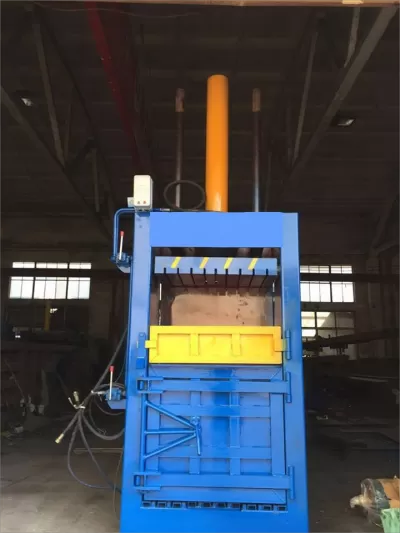Picture this: Your company’s waste piles up day after day, consuming valuable space and resources. It feels like an unending battle against trash. What’s the solution? A waste compactor. It’s not just about crushing garbage; it’s about optimizing your operations and saving money. Let’s dive into why waste compactors are a game-changer.

First off, what exactly is a waste compactor? It’s a machine designed to compress large volumes of waste into smaller, manageable bundles. Think of it as the Hercules of the waste management world, effortlessly reducing the size of your waste material. Waste compactors help businesses streamline their waste disposal processes, saving both space and costs. But there’s more to it than just squishing trash.
How Do Waste Compactors Work?
You might be wondering, how do these mighty machines work? It’s quite simple. Waste is fed into a chamber where a powerful hydraulic press or ram compresses it into a dense block. The compacted waste is then either bagged or directly transported to recycling facilities. This process significantly reduces the volume of waste, making it easier and more cost-effective to handle.
The compactors come in various sizes and types, tailored to different needs. From small businesses to large industrial plants, there’s a compactor for everyone. Whether dealing with paper, plastic, or general waste, these machines make waste management a breeze. The versatility and efficiency of waste compactors can revolutionize your waste handling processes.
What are the Benefits of Using a Waste Compactor?
Space Savings
One of the most immediate benefits of a waste compactor is the space it saves. Instead of having bulky trash bins taking up valuable real estate, a compactor reduces waste volume, freeing up space for more productive uses. Less space for waste means more room for your core business activities.
Cost Efficiency
Waste disposal costs can be hefty, especially if you’re frequently paying for pickups and landfill fees. Compactors reduce the frequency of waste pickups by condensing the waste, leading to significant cost savings. A more efficient waste management system directly impacts your bottom line.
Environmental Impact
Reducing waste volume isn’t just good for your business; it’s good for the environment. Compacted waste takes up less space in landfills, reducing the overall environmental footprint. Moreover, compactors can help segregate recyclable materials more efficiently. A greener approach to waste management aligns with sustainable business practices.
Improved Hygiene and Safety
Overflowing trash bins are a health hazard and an eyesore. Compactors help maintain a cleaner, safer workplace by ensuring waste is contained and managed properly. This leads to a more pleasant working environment and reduces the risk of accidents and pest infestations.
Different Types of Waste Compactors
Stationary Compactors
Ideal for large businesses and industrial applications, stationary compactors are fixed units designed to handle high volumes of waste. They’re perfect for places where waste is generated consistently in large quantities.
Self-Contained Compactors
These compactors are best suited for wet waste applications, such as food processing plants. They prevent leakage and are designed to handle liquid waste efficiently. Self-contained compactors ensure that wet waste is managed without causing environmental issues.
Vertical Compactors
Smaller in size, vertical compactors are ideal for businesses with limited space. They’re easy to operate and are perfect for handling moderate waste volumes. A great choice for retail stores, restaurants, and offices.
Pre-Crushers
For businesses dealing with bulky or tough waste materials, pre-crushers are the solution. They break down large items before compacting, ensuring efficient waste management. Perfect for dealing with furniture, pallets, and other large debris.
How to Choose the Right Waste Compactor?
Assess Your Waste Volume
Understanding the volume and type of waste your business generates is crucial in selecting the right compactor. A thorough waste audit can provide insights into your specific needs.
Consider Your Space
Evaluate the available space for the compactor. Larger industrial compactors require more space, whereas smaller businesses might opt for vertical or portable units. Choosing the right size ensures optimal use of your workspace.
Think About Maintenance
Regular maintenance is key to ensuring your compactor runs smoothly. Consider the ease of maintenance and availability of service support when choosing a compactor. A reliable machine with good service backup is a smart investment.
Budget
While compactors can save money in the long run, they require an initial investment. Evaluate your budget and consider financing options if needed. Balancing cost and benefits is essential for a sound investment.
Conclusion
In conclusion, waste compactors are indispensable tools for modern businesses. They save space, cut costs, improve hygiene, and contribute to environmental sustainability. Choosing the right compactor involves assessing your waste, available space, maintenance needs, and budget. Investing in a waste compactor can streamline your operations and provide significant long-term benefits.
